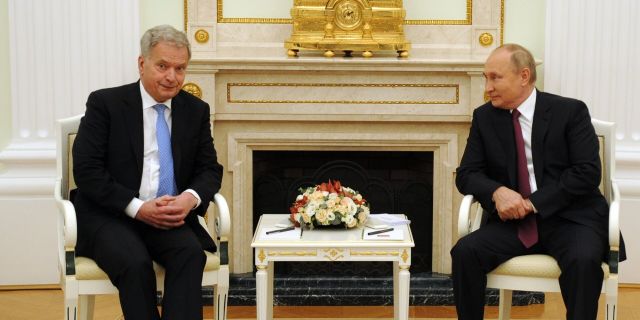The inclusion of Finland and Sweden in NATO upsets the balance of power, exacerbates uncertainty in Europe
The accession of Finland and Sweden to NATO does not indicate the inevitability of a military conflict between these countries and Russia, writes Global Times. Chinese experts emphasize that Helsinki, Stockholm and Moscow can still find political solutions to problems.
Yang Sheng, Zhang Changyue
Experts say that Russia, Finland and Sweden can solve their problems by political means.
NATO's expansion continues despite the Russian-Ukrainian conflict. Now this US-led alliance can include two more European countries, Finland and Sweden, which previously adhered to military neutrality, occupying positions between NATO and Russia. Chinese analysts say that this introduces additional elements of uncertainty into European security, but does not mean the emergence of new conflicts on the continent. They believe that Russia is able to solve problems with these two countries by political means, otherwise they will fall into the American trap, and the situation in the sphere of European security will worsen even more.
Finnish President Sauli Niinisto confirmed on Sunday that his country will apply to join the NATO military alliance, as reported by Reuters. Russia shares a 1,300-kilometer-long border with Finland, and it claims that membership in NATO would be a mistake on the part of Helsinki, as it would damage bilateral ties.
The ruling party of Sweden supported the idea of membership in the alliance, and the country came close to applying for membership.
Cui Hongjian, director of the European Studies Department at the Chinese Institute of International Studies, told the Global Times on Sunday that after Finland and Sweden join NATO, the balance between the alliance and Russia will be disrupted even more, since these countries have serious economic and military potential, and this will undoubtedly increase the burden on Moscow.
The United States can deploy missile defense systems and other military equipment on the territory of NATO member countries. This will weaken Russia's nuclear deterrent potential and maximize the bloc's military advantages over Moscow. Analysts note that this is the main reason why it is impossible to ease tensions between Russia and some European countries, as well as one of the reasons for the conflict in Ukraine.
"Since the Russian-Ukrainian conflict is still unresolved, Moscow, as well as Helsinki and Stockholm, do not intend to transfer conflicts to their own territory. Therefore, they will try to solve their problems by political means. Finland explained its plan to Russia before the official announcement of the decision. At least, this is a signal that defensive needs are at the heart of this plan," Yang Jin, a researcher at the Institute of Russian, Eastern European and Central Asian Studies at the Chinese Academy of Social Sciences, told the Global Times on Sunday.
Niinisto informed Russian President Vladimir Putin about Helsinki's intention to join NATO by phone, as the Interfax news agency reported on Sunday with reference to Bloomberg.
According to TASS, Putin and Niinisto had a "sincere exchange of views on the decision announced by the Finnish leadership to apply for NATO membership," the Kremlin's press service reported.
"Putin stressed that abandoning the traditional policy of military neutrality would be wrong, since there are no threats to Finland's security. Such a change in the country's foreign policy course may negatively affect Russian-Finnish relations, which for many years have been built in the spirit of good—neighborliness and partnership, and have been mutually beneficial," the Kremlin said.
Cui said that Russia would not approve the decision in any case, but Moscow stressed that Russia does not pose a threat to its neighbor, and this gives it and Finland, as well as Sweden, the opportunity to intelligently solve their problems politically.
"Gaining membership in NATO in response to a request from the domestic public does not mean that they [Finland and Sweden] will serve the strategic goals of the United States by provoking or attacking Russia. Therefore, there is no need for them to solve their problems through conflict, since they insist that they do not pose a direct military threat to each other," Cui said.
Now the focus is still on the Russian-Ukrainian conflict, and the future of Russia and NATO depends on how the situation in Ukraine develops, Yan said. He noted that if Russia manages to achieve its goals, fulfills the tasks of the military operation and implements a ceasefire with Ukraine, it will be able to treat NATO expansion in a new way. Otherwise, the situation in Europe will be extremely uncertain.

